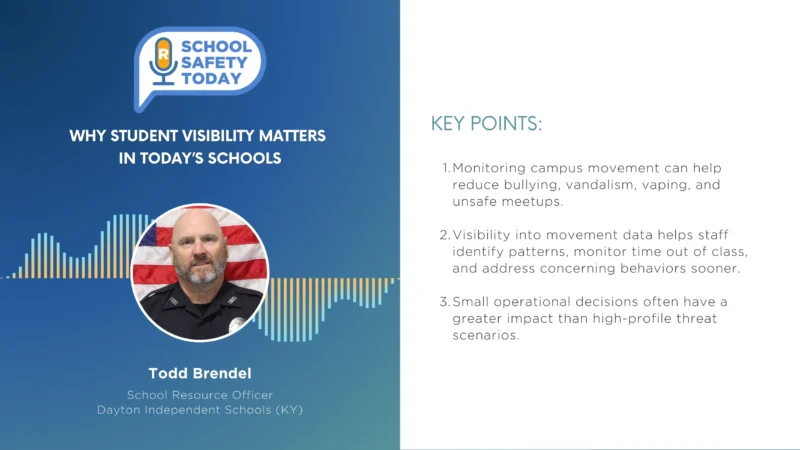How Remote Learning Tech Can Cure Today’s Mental Health Crisis
Collin Ernst, CEO of Learnwell, wants you to forget about the COVID slide, or digital equity, or personalized learning—for a minute anyway. In this episode, Collin makes the case that none of these issues can be solved without first addressing the mental health needs of not only students but faculty and families as well. Listen to how he believes lessons learned during the pandemic may help.
In a recent survey conducted by LearnWell, a leading mental health services company in K-12 education, more than 87% of educators stated that the current COVID crisis made addressing student mental health needs more important than in previous years. The survey polled 220 district-level educators across the country about their student mental health initiatives, related concerns and goals for the 2020-21 school year.
When asked to rank five key issues for the current school year, respondents rated the goal of identifying and supporting students with mental health needs as the second most important. The most important was following the CDC guidelines for COVID-19.
However, 69% of respondents revealed that they were not confident in their ability or their process for identifying students facing depression, anxiety and stress, or indicated they would like more training on the topic. “COVID-related shifts to hybrid and remote learning have disrupted classroom instruction as well as how educators identify and support students with mental health needs,” said LearnWell’s CEO, Collin Earnst.
Additionally, more than half (56%) of respondents stated that individual school counselors were responsible for student mental health initiatives. More than a third (39%) of respondents also stated that, rather than a clearly defined, centralized process, their schools address student mental health needs on a case-by-case basis.
“School counselors are primarily responsible for students’ mental health needs, but unfortunately, most districts have far fewer than one counselor per every 250 students, which is the minimum ratio recommended by the National Association of School Psychologists,” said Earnst. “Students are experiencing trauma caused by several COVID-related circumstances. Their families may have experienced illness and unemployment, they may have been victims of domestic abuse during stay-at-home orders, or they may be affected by the ongoing social justice issues. All of these experiences result in a dramatically increased level of mental health needs, and many districts are likely to find they do not have sufficient internal resources to respond.”
LearnWell partners with K-12 school districts, hospitals and treatment facilities, and families to provide an integrated set of academic and mental health service offerings:
- Virtual Counseling services for students with emerging mental health needs and students recently discharged from mental health treatment. In-person counseling is also available in selected geographic areas.
- Virtual and in-person academics during mental health treatment, which includes obtaining the student’s assignments and delivering personalized instruction and academic structure throughout their treatment.
- One-to-one virtual tutoring services to support students at-risk of falling behind due to mental health needs and to help students to stay on pace with classmates following mental health treatment.
Earnst concluded, “Even before these extraordinary circumstances, research indicated that 49% of students may have an underlying mental health condition; however, due to limited access to mental health services, up to 80% of students with anxiety and 60% of students with depression are untreated. LearnWell is focused on providing more equitable access to academic and mental health services, helping to improve the lives of those facing the need for mental health support.”
About LearnWell
LearnWell partners with hospitals and treatment facilities, K-12 school districts, and families to support mental health wellness. Its integrated set of academic and mental health services are offered throughout the continuum of care to address emerging mental health needs, promote academic wellness during treatment, and support the transition back to the school environment following treatment. For more information go to: https://www.learnwellservices.com/.








